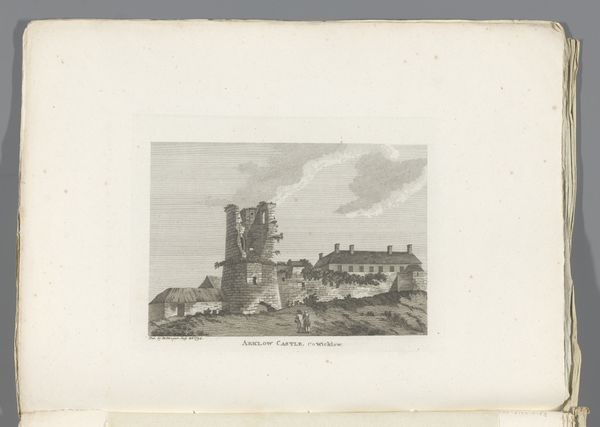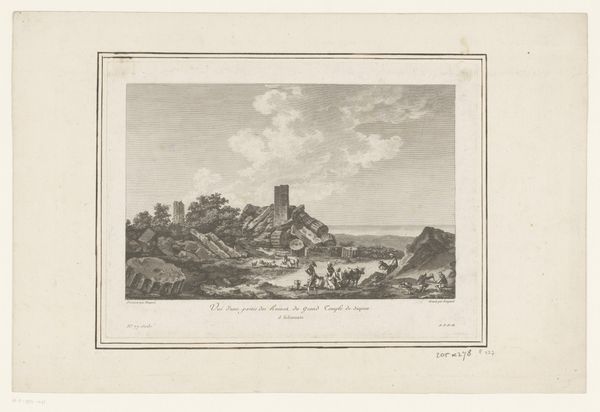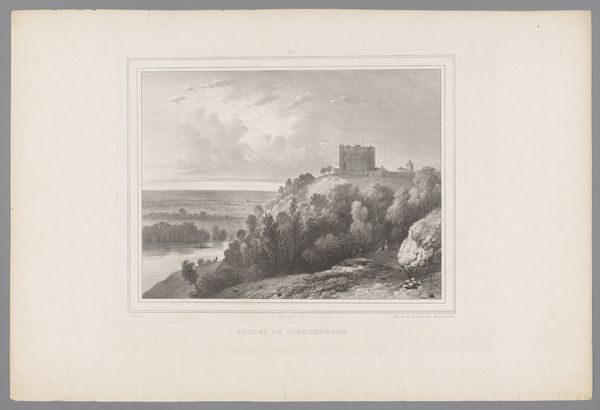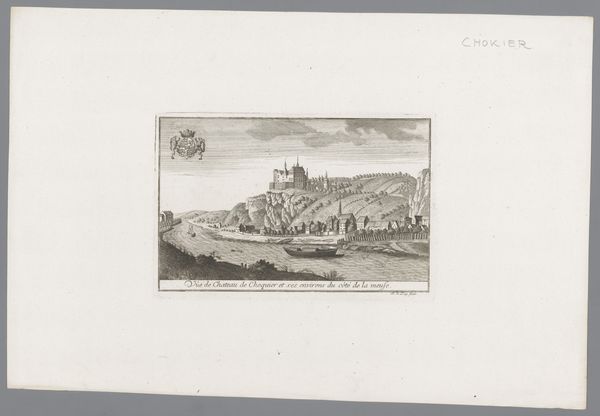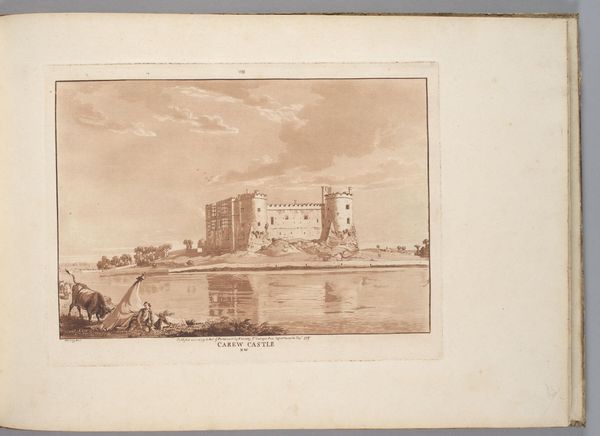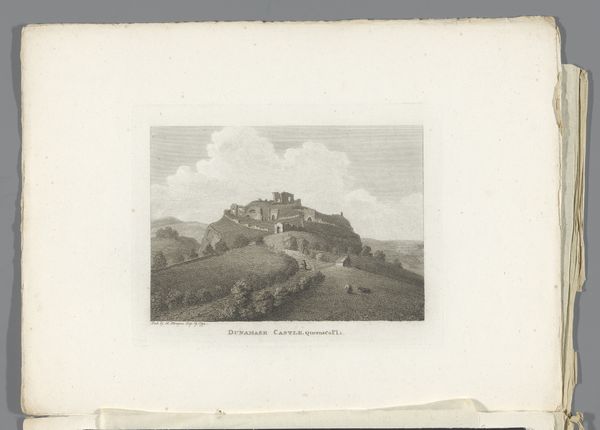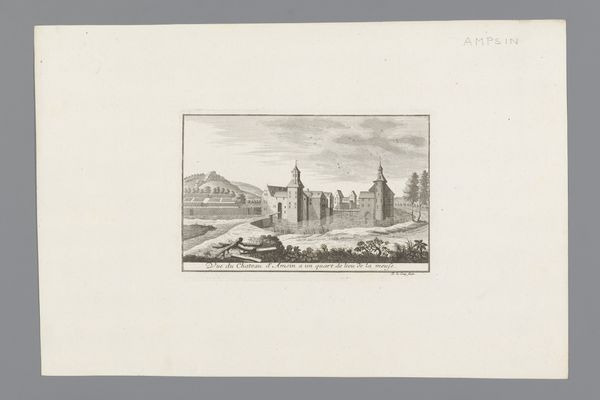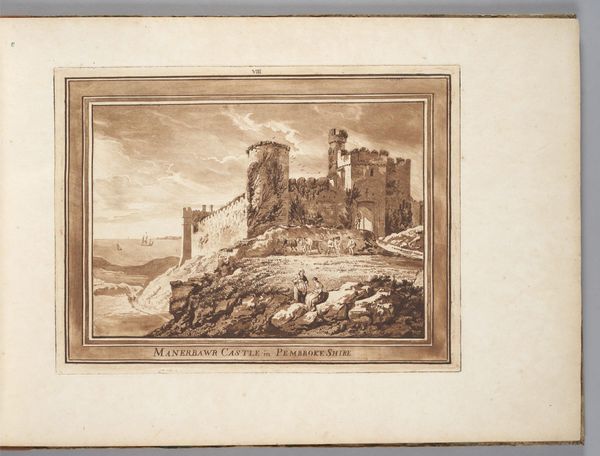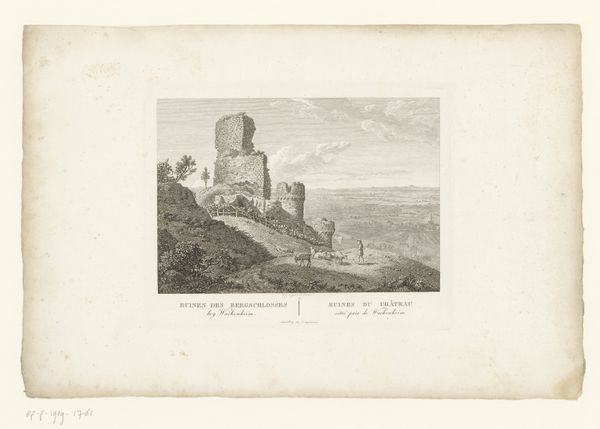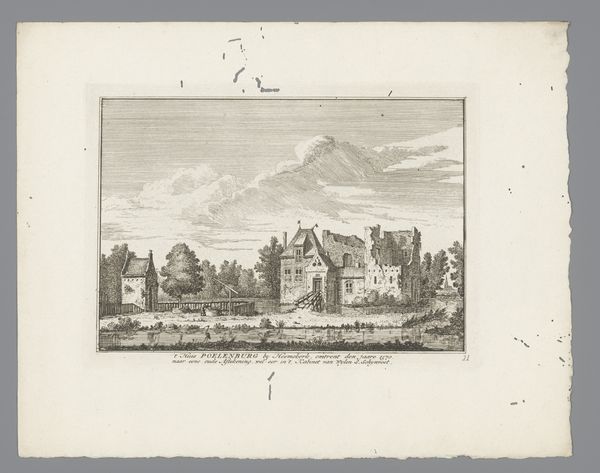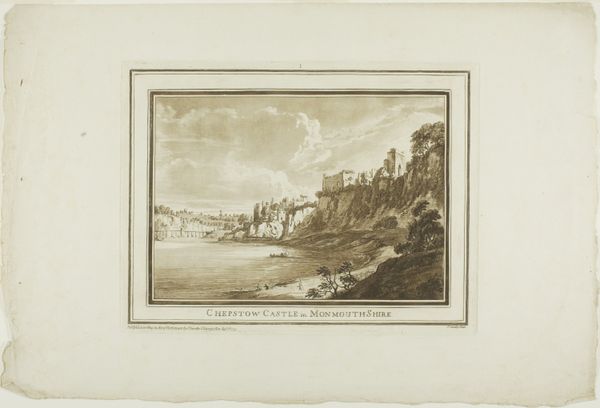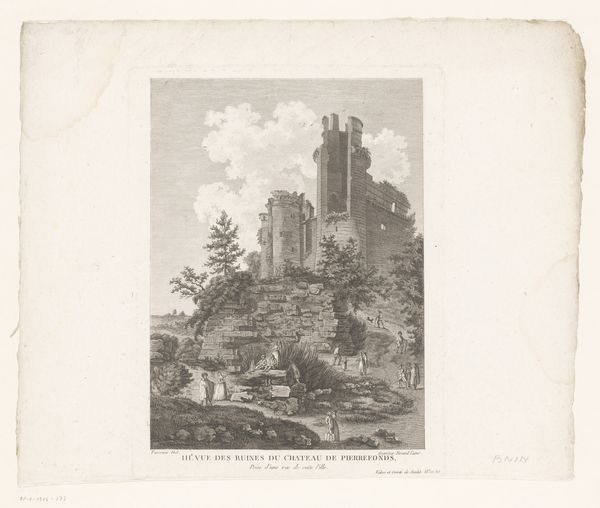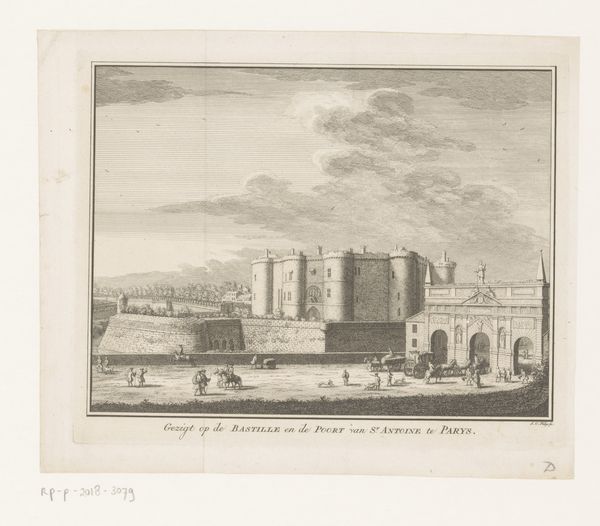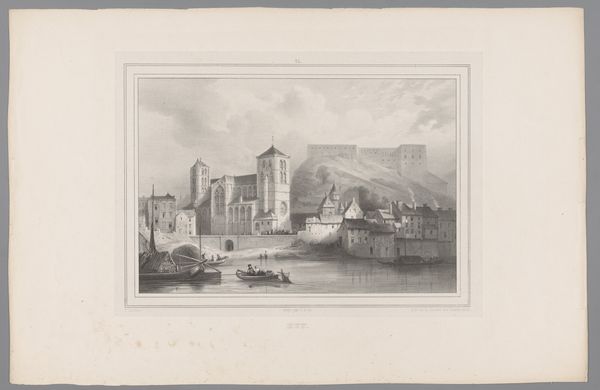
Gezicht op de ruïnes van Dunamase Castle vanuit het zuidwesten gezien Possibly 1794 - 1798
0:00
0:00
drawing, print, etching, paper, engraving
#
drawing
# print
#
etching
#
landscape
#
paper
#
engraving
Dimensions: height 155 mm, width 201 mm
Copyright: Rijks Museum: Open Domain
James Newton's print captures Dunamase Castle using etching, a process that marries artistry with industrial technique. The plate would have been coated with a waxy ground, the design scratched through it with a needle, and then acid-etched into the exposed metal, before finally being inked and printed. Etching allowed for the relatively quick production of multiple images, democratizing access to landscapes and landmarks for a growing middle class. The delicate lines and tonal range, achieved through varying the depth of the etch, create a sense of depth and texture. Note how the crumbling stone is meticulously rendered, inviting reflection on the passage of time and the transience of power. The print medium itself, born from the division of labor, mirrors the castle’s own history of construction by many hands. Considering the print’s materiality and production encourages us to view it not just as a picture, but as a cultural artifact embedded in the social and economic shifts of its time.
Comments
No comments
Be the first to comment and join the conversation on the ultimate creative platform.
